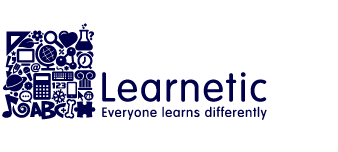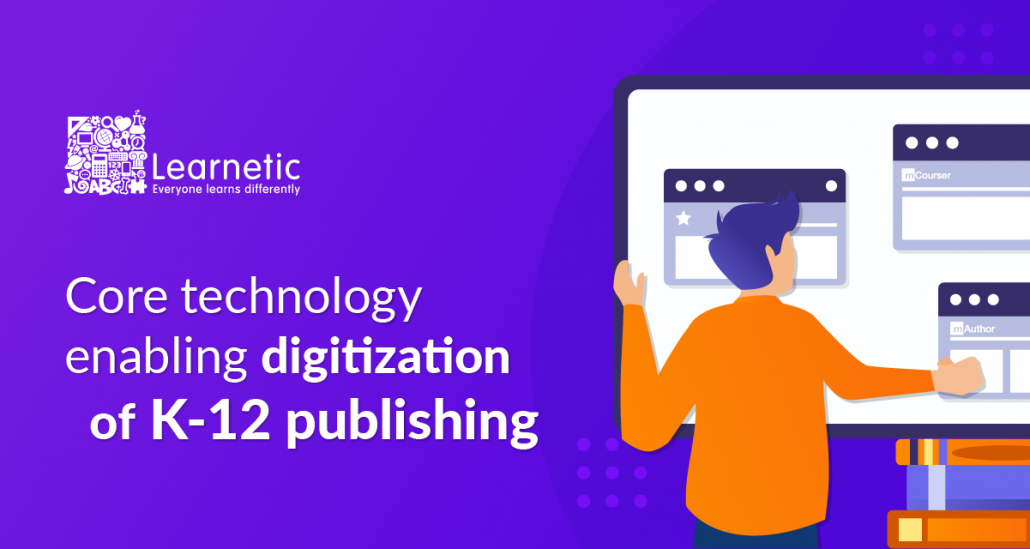How Publishers can cope and thrive with the digital transformation of K-12 publishing?
Some things in life are almost impossible to predict. However, one thing that is certain is that digital publishing will continue to play an ever greater role in K-12 education. As a result, digital resources will form an even larger part of the K-12 publishing market whilst revenues from traditional books will continue to dwindle.
The Covid 19 Pandemic and subsequent closure of so many schools acted as a catalyst for the digital revolution in education. The switch to distance learning opened many peoples’ eyes to the possibilities of a new, digital approach. EdTech started to attract some big names and even bigger money.
The digital revolution isn’t coming, it is already here. As educational publishers, we should be questioning how we can be best placed to survive these changes. And how can we take advantage of the opportunities they present.
Destination Digital
You are faced with a choice when embarking on the path to digitisation. You can play it safe and keep things simple by creating pdfs or interactive pdfs in much the same way you create physical textbooks. This may be comfortingly familiar, but it doesn’t allow you to fully exploit digital publishing’s possibilities.
You may choose to convert your textbooks into the ePub format so that they can be displayed on mobile devices, eBook readers and desktops. But this can be labour-intensive and also fails to maximise your content’s digital potential.
Or you can embrace the future and convert your content to an XML file format with a dedicated HTML5 player that operates from a Learning Management System (LMS). This will open up a whole new world of interactivity and engagement for your users. It will also represent a paradigm shift in what you do as a company. You will move from being experts in page layouts and linear activities to becoming skilled eCourse creators that inform, engage and entertain students in ways that were previously unimaginable.
The Big Data Bonus
Perhaps the biggest advantage of going “full digital” is the insights you will gain from Big Data. You will learn which aspects of a course are most popular with your users as well as which aspects are accessed the least. You will discover the order in which your content is accessed. You will be able to see how many mistakes are typically made on a particular task and how long a student typically spends on it.
This information is invaluable for publishers and allows their products to evolve into exactly what their customers want. Resources published in books are a snapshot of what publishers hope and believe their customers want at that time. They have no way of ascertaining whether they have satisfied the market other than by interpreting sales figures and commissioning expensive market research.
Big Data means they know exactly what aspects of their course are a success and which parts need amending. They know which activities are too challenging for their students and which are not rigorous enough. As a result, content can be gradually tweaked and evolved until it is exactly what the market requires. When choosing your LMS, it is essential you pick one, such as Learnetic’s mCourser, that is tailor-made for collecting Big Data. Many LMS’ on the market do not incorporate this invaluable function.
Formatted for the Flipped Classroom
Technology is quite literally turning some aspects of K-12 education on its head. The flipped classroom method of teaching involves giving students access to learning materials ahead of the class. Then, when they arrive at their lesson, they are already equipped with the knowledge and understanding that can be explored and applied with their teacher.
This pedagogical approach is becoming increasingly popular with K-12 institutions all across the world and, to do it effectively and efficiently, the teacher needs access to an LMS such as mCourser. This will allow them to deploy and assign the exact resources they want to the exact pupils they want. Students can then use the platform to access the materials whenever and wherever they want in preparation for their lesson.
The Importance of the Authoring Tool
The truth is, if you try to hedge your bets and merely convert your textbooks into pdfs, you are at best delaying the inevitable for a few years. The returns from your physical textbooks will continue to dwindle and you will fall behind in the digital market to competitors who offer more ambitious, immersive and attractive products.
The key, strategic decision you will have to make in transitioning to your digital future is your choice of an authoring tool. It will become central to everything you do for the foreseeable future so it is paramount that you make the correct decision. Questions you should be asking about authoring tools include:
- Is it intuitive? If so, it means your existing non-technical team can start creating eContent from day one. This will lead to significantly shorter development times and lower costs.
- Does it operate using industry-standard file formats? This will allow far more flexibility when it comes to adding external content – or if a third party wants to edit your courses.
- Is it WCAG-compliant? Adhering to the Web Content Accessibility Guidelines not only means that users with a wide variety of learning difficulties can engage with your content, it also means you will comply with the European Accessibility Act that comes into force across the EU in 2025.
- Is it Cloud-based? This is essential to enable several people in various locations to participate in the creation of the same course.
- Can it create courses that can be accessed on a variety of devices, operating systems and online or offline? The growing prevalence of Bring Your Own Device (BYOD) in schools across the world make this an essential feature.
- Does it utilise an open-source player? This will help you avoid the technical cul-de-sacs represented by third-party controlled players.
- Does it allow you to create Adaptive Learning eCourses without having to outsource to software programmers?
Does it enable you to collect Big Data? This will provide you with the invaluable insights outlined above.
Take care of your digital future
mAuthor tool is extremely user-friendly and packed with pre-set activities and templates to choose from. This eliminates the need for page-by-page composition and greatly improves productivity. It also uses a standardised XML file format that guarantees flexibility and expands your content’s development opportunities in the future. mAuthor is fully WCAG compliant ensuring your content will be accessible to as many users as possible and ready for EU-wide legislation in 2025.
mAuthor is Cloud-based and therefore enables colleagues based all around the world to cooperate on the same eCourse. By working in tandem with the mCourser LMS, mAuthor enables the creation of Adaptive Learning eCourses and collects Big Data. This will help ensure you keep giving your users exactly what they want.
Do you want to learn more about an intelligent LMS platform designed for K-12 education? Do you need an authoring tool to create and publish fully interactive educational materials? Get in touch and let us lead you to your digital future.





